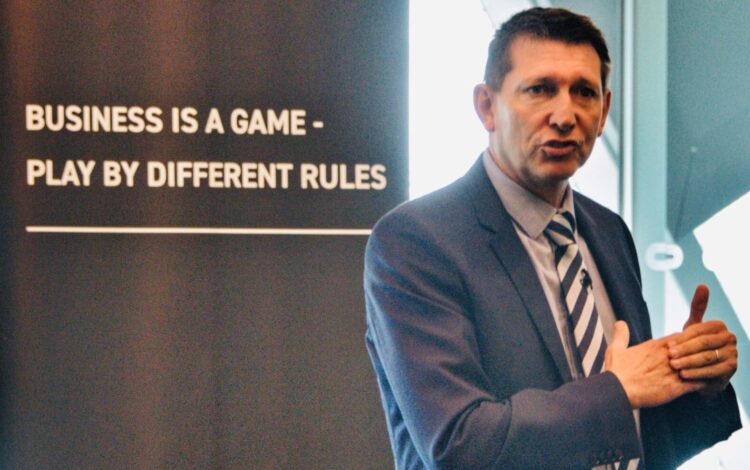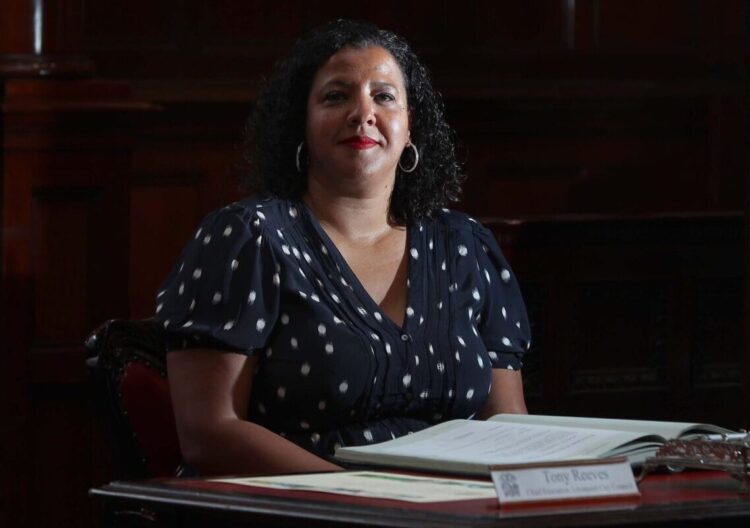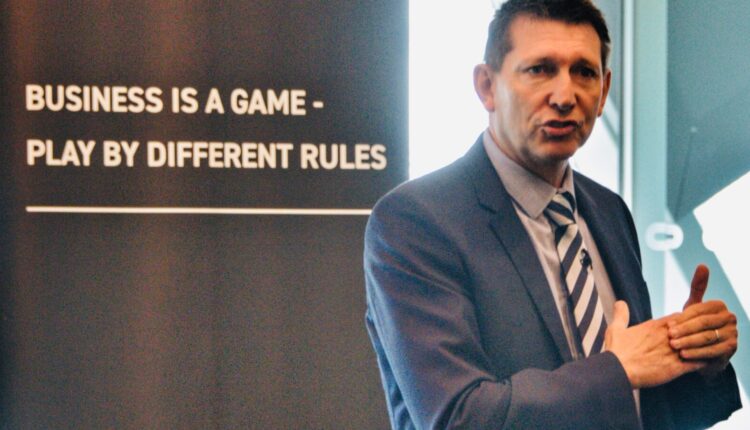Business leader Frank McKenna says the lack of a ‘collaborative partnership’ between Liverpool City Council officers and Government commissioners is hitting business growth in the city. Tony McDonough reports

Progress on stalled property projects in Liverpool has become “painfully slow” since Government commissioners were parachuted in to help run the city, a business leader claims.
Frank McKenna, chairman and chief executive of business lobby group Downtown in Business (DIB), says there needs to be a “collaborative partnership” between council officers and the commissioners to get Liverpool’s economy moving.
In March 2021, a damning report by Government inspector Max Caller identified a “fundamental failure of audit and governance” with the authority and “a lack of scrutiny and oversight” across its highways department.
Weeks after the publication of the report the then Secretary of State for Housing, Communities and Local Government, Robert Jenrick, sent in four commissioners to oversee and overhaul the city’s regeneration, highways, procurement, and governance and audit functions.
In November, a report by the commissioners said the council still faces issues around leadership, governance, competence and its finances. In early December Mayor Joanne Anderson signed a new policy which aims to minimise the risk of fraud, bribery, corruption and tax evasion.
Mr McKenna spoke this week at the first Downtown event of the New Year in Liverpool, with the chair of the Local Enterprise Partnership Asif Ahmed, and its chief executive Mark Basnett, also in attendance.
Talking about the governance of the city council, he said: “Although chief executive Tony Reeves, elected mayor Joanne Anderson, and their team remain ‘in charge’ of the local authority – the appointed government commissioners oversee key activity, particularly in relation to planning, regeneration, investment, and development.
“There are currently north of 40 stalled development sites in Liverpool. Getting the council to agree to a meeting with developers, never mind proactively pushing forward and encouraging new projects, is painfully slow.

“Council officials are naturally claiming that they are operating with one hand tied behind their backs because of the scrutiny from Whitehall – and commissioners are claiming that the slow pace and poor processes are an inherent, longer-term problem within the culture of the council.
“Unless a more collaborative partnership between its civil servants and those officials imposed by the government can be created in the town hall, the struggle for progress seems likely to continue – much to the frustration of the city’s business community.
“I think the preference for most of us would be for a return to the city’s mayor, elected members and their officials to be able to get on with things unhindered.”
However, Mr McKenna added there were “still reasons to be optimistic”. He explained: “I understand the council is focused on progressing the King’s Dock site, Pall Mall, Liverpool Waters, and the festival gardens project. If they can deliver some, or all, of those schemes then that will be a result.
“We also have one of, if not the, biggest development in Europe is taking place on the city’s waterfront, as Everton build a multi-million-pound stadia that will act as a catalyst for much-needed investment and regeneration on the North Dock, one of the most deprived areas of Liverpool.
“The prospect of new residential, commercial, and leisure facilities will offer this Liverpool Waters site the opportunity of being a major investment centre for the Northwest in the coming years.
“The city’s Knowledge Quarter, already securing a reputation as one of the country’s most exciting and innovative investment and development locations, will see additional world class buildings constructed to compliment a new hospital and its impressive ‘Spine’ development.”
Mr McKenna was also more upbeat about the work of the Liverpool City Region Combined Authority under Metro Mayor Steve Rotheram.
He said: “He has appointed a new chief executive in Katherine Fairclough, who will be determined to ensure that the extra resources the Metro Mayor has secured for the city region are utilised to their maximum over the next twelve-months and beyond.”
LBN understands there are currently 31 stalled property schemes in the city. Liverpool City Council is the freeholder, or partial freeholder, on four of those projects.

